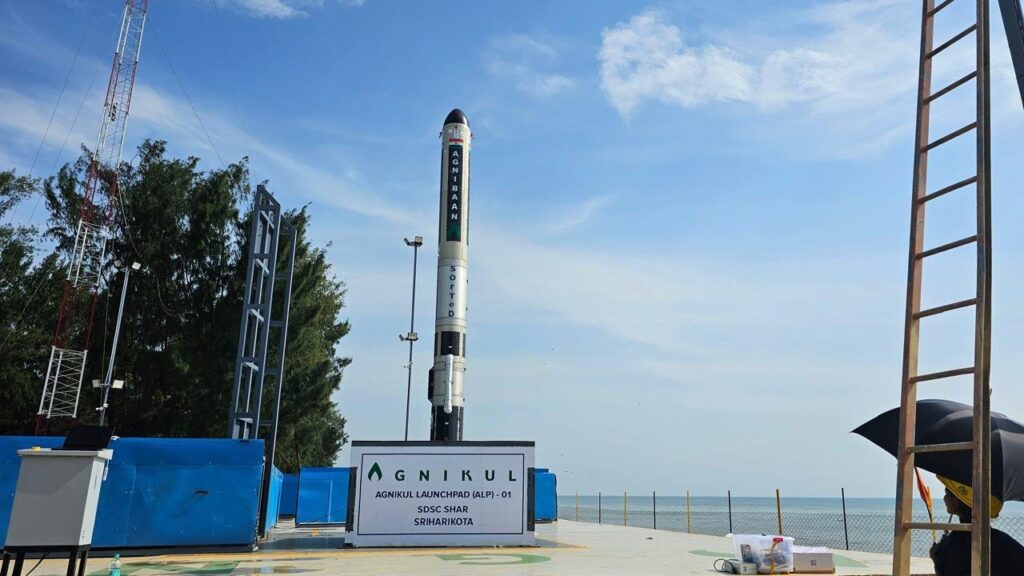Agnikul Cosmos, a space technology startup incubated at IIT Madras, has made history by successfully launching the world’s first 3D-printed semi-cryogenic rocket engine. The successful launch took place on May 30, after four previous attempts, at India’s first private launchpad, ALP-01, located at the Satish Dhawan Space Centre in Sriharikota.
Key Details of the Mission
The mission, named SOrTeD, demonstrated a single-stage launch vehicle powered by the Agnilet engine, which is the world’s first single-piece 3D-printed semi-cryogenic rocket engine. The launch vehicle, standing 6.2 meters tall, featured an elliptical nose cone, advanced avionics, and autopilot software developed in-house. The mission lasted approximately two minutes and included complex maneuvers like pitch-over and wind biasing before ending in the Bay of Bengal.

Significance of the Mission
This mission marks a significant milestone in India’s space technology development. It showcases the capabilities of indigenous technology in advancing space exploration. The Agnilet engine’s success is particularly notable because it represents a breakthrough in manufacturing technology and efficiency, offering new possibilities for the future of rocket design and production.
Reactions from Personalities
The Indian Space Research Organisation (ISRO) congratulated Agnikul Cosmos on X (formerly Twitter), highlighting the mission’s importance: “Congratulations Agnikul Cosmos for the successful launch of the Agnibaan SOrTeD-01 mission from their launch pad. A major milestone, as the first-ever controlled flight of a semi-cryogenic liquid engine realized through additive manufacturing.”
Prime Minister Narendra Modi also praised the Agnikul team, calling it a “remarkable feat” in his X post. IIT Madras expressed pride in its incubated startup, noting the world’s first rocket launch from India’s only private launchpad with a single-piece 3D-printed rocket engine.
Potential Impact and Future Plans
The success of the SOrTeD mission is a significant step forward for Agnikul Cosmos as it aims to capture a share of the multi-billion-dollar small satellite launch market. The data collected from this mission will help refine the development of the Agnibaan launch vehicle, which is designed to be highly customizable and capable of carrying a 300 kg payload to a 700 km orbit. This technology could revolutionize small satellite launches by making them more accessible and cost-effective.
Several notable figures witnessed the launch, including Dr. S. Somanath, Chairman of ISRO; Dr. Pawan Goenka, Chairman of IN-SPACe; Rajeev Jyoti, Director (Technical) of IN-SPACe; and A. Raj Rajan, Director of the Sriharikota Range (SHAR). Key members of the Agnikul team present included Prof. Satyanarayanan R. Chakravarthy, Founding Advisor; Srinath Ravichandran, Co-Founder and CEO; Moin SPM, Co-Founder and COO; Saraniya Periaswamy, Vehicle Director of Agnibaan SOrTeD; and Umamaheswari K., Project Director of Mission-01 and Agnibaan SOrTeD.
The success of this mission positions Agnikul Cosmos as a leader in innovative space technology, paving the way for future advancements in the industry.


